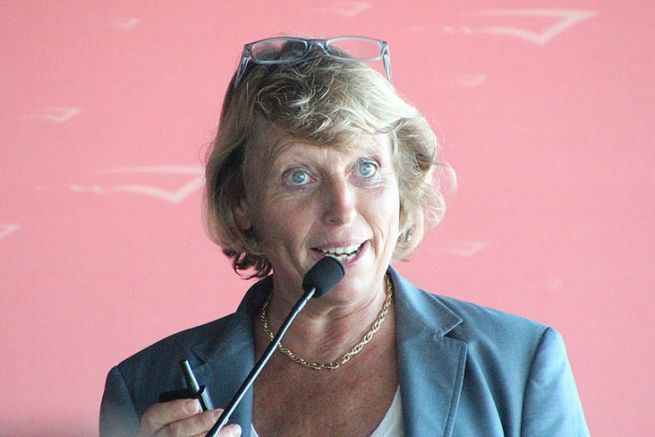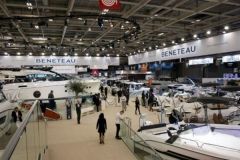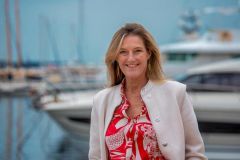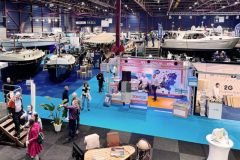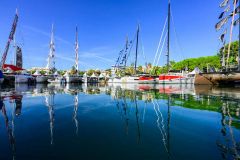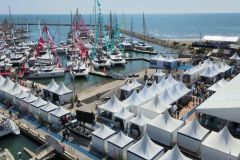Stable attendance and number of boats
A few weeks before the closing of the 2022 edition of the Cannes Boat Show, the Cannes Yachting Festival commissioner, Sylvie Ernoult, is satisfied. The number of registered boats, 650, is stable, as well as the number of exhibitors. The same goes for the number of visitors, which is 54,000, identical to 2019 and slightly lower by 400 people compared to 2021.
The Commissioner details: "It is always difficult to know a few days after the show how many boats are actually on display, because there are always "no shows" in our industry, where new boats are finished for rods. There may have been a few more this year, due to the supply issues we all know about. We have returned to the levels of 2019, unlike other sectors, as we can see at RX (Editor's note: the organizing company, a specialist in trade shows worldwide). And there is a real qualitative progression, as reflected in the ever-increasing number of previews."
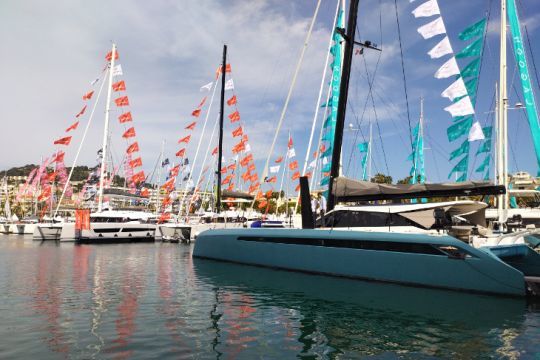
An international clientele returns
Although the show cannot provide statistics on the origin of visitors, Sylvie Ernoult says that foreign visitors from far away have made a comeback in 2022 on the docks of the Cannes show: "Foreigners, especially Americans or from the Middle East were there, qualitative visitors who buy. As for the effects of the sanctions against Russia, we are quite unaffected. We applied the choices and ethics of RX to refuse Russian exhibitors, which are generally few. As for visitors, we can't really know. But Monaco is probably more impacted than we are."
Accompanying the evolution of the yachting industry
At the end of a scorching summer and in a context of water shortage, the environmental issue could not be avoided. The organizer claims to have done his best to pass on the messages and to make his own way of working evolve: "I think efforts have been made. Concerning water and the ban on boat washing, I have had calls from large shipyard owners asking me if I could allow them to wash their boats. I reminded them that it was the law and a decision of the State, that they had to respect it. As I told the crews: a boat that is not washed is a problem. If they are not all washed next to each other, it is no longer a problem. For our part, we continue to reduce paperwork by eliminating all ticketing and plans, we reduce the surface area of carpeting, without being able to completely eliminate it in port areas that are not always flat. The ports have ecological labels that we must respect with them."
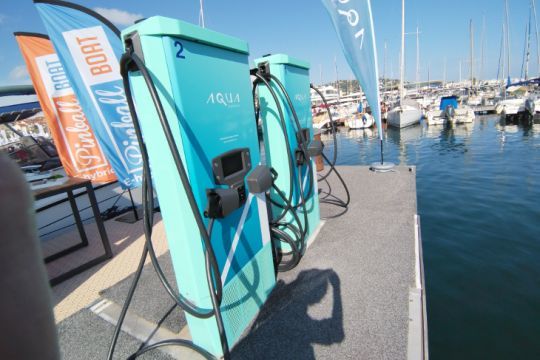
More broadly, the Cannes Yachting Festival curator sees her role in the yachting transition as that of a catalyst. Assuming to represent the industry with sometimes overpowered boats, but highlighting when she can the innovations. "We are representative of the industry. Our role is to accompany it in its evolution and to boost it if we can. We accompany our customers, like with the electric boat area. Even if there are only 12 of them, we put them forward. That's our role in this necessary transition."

